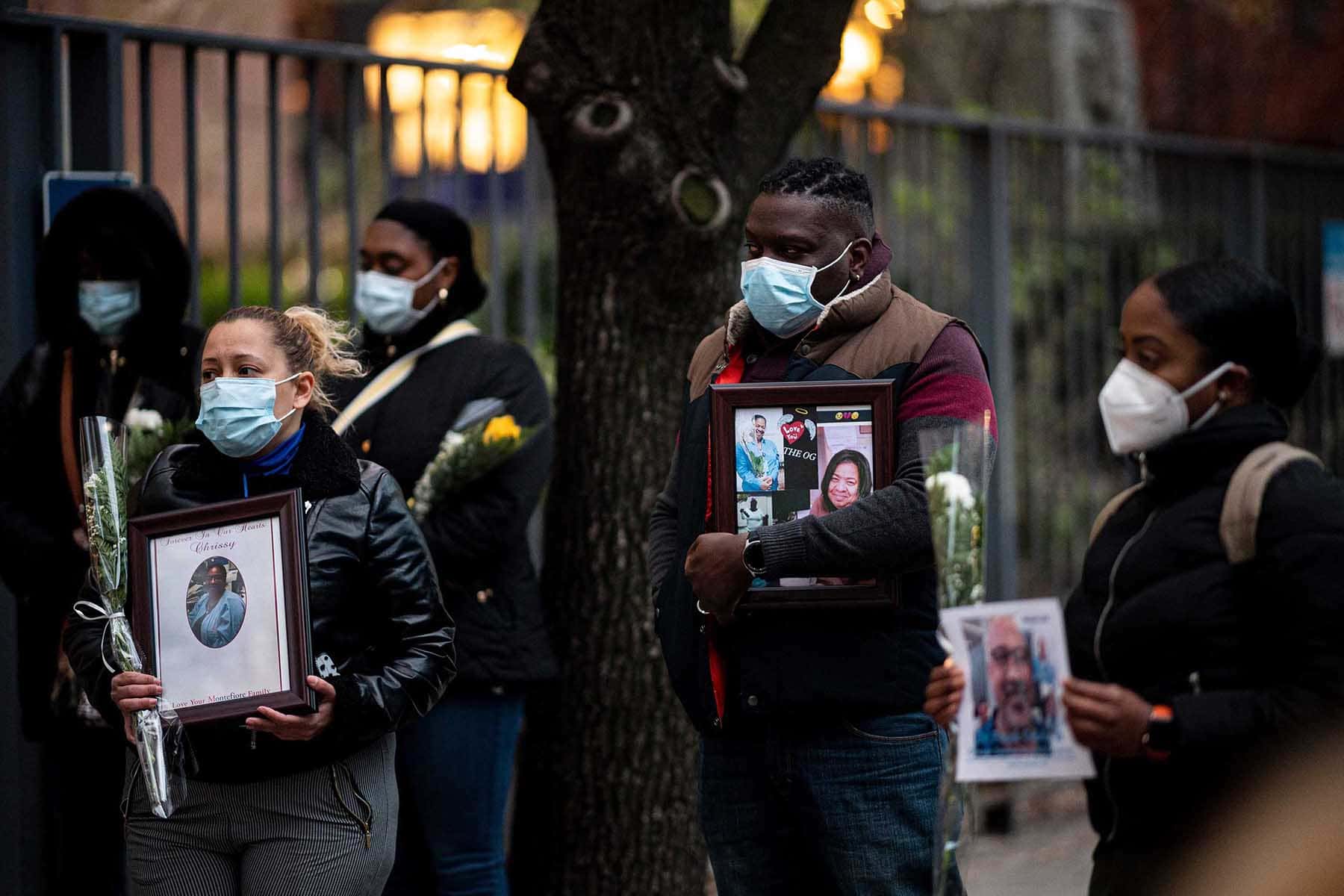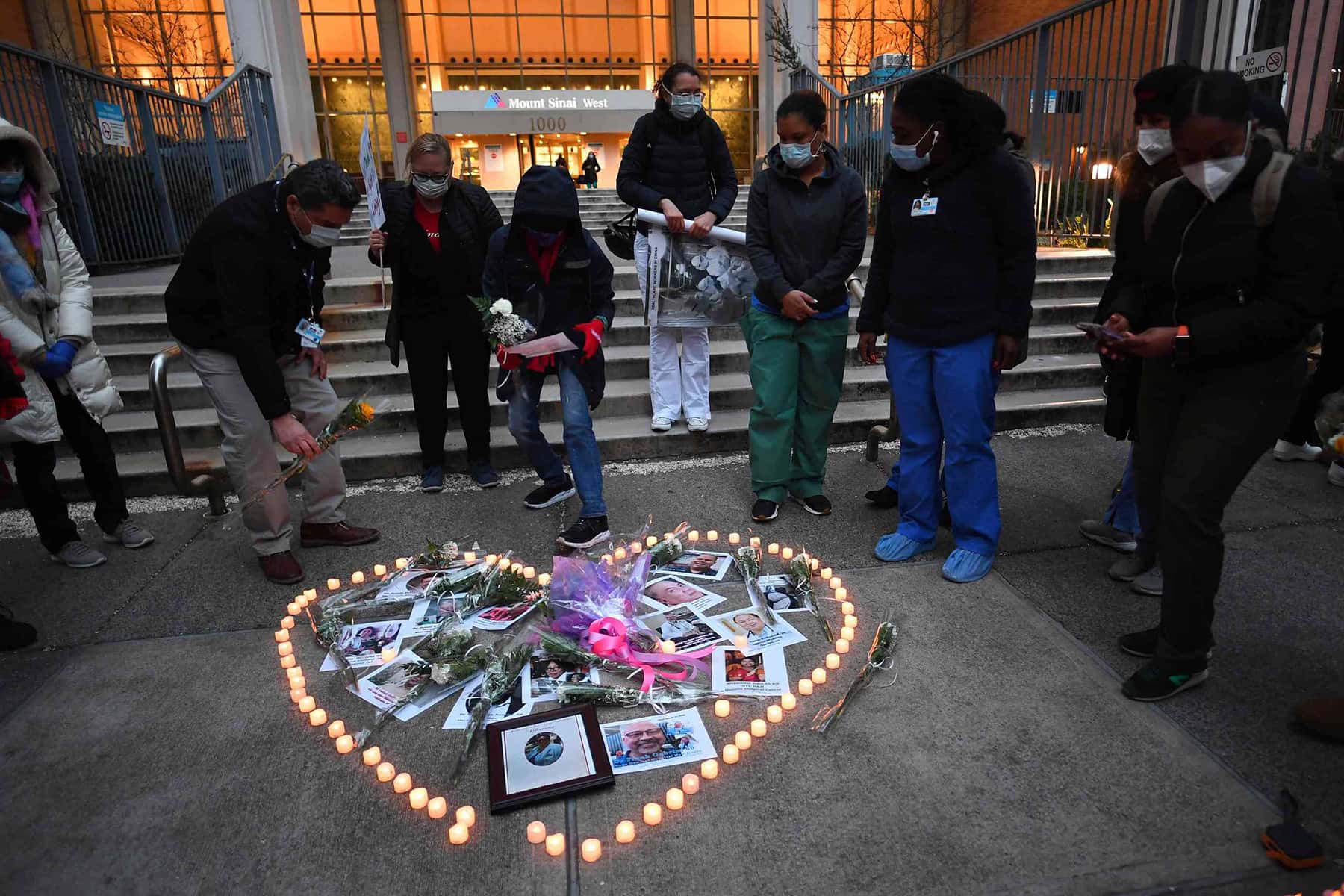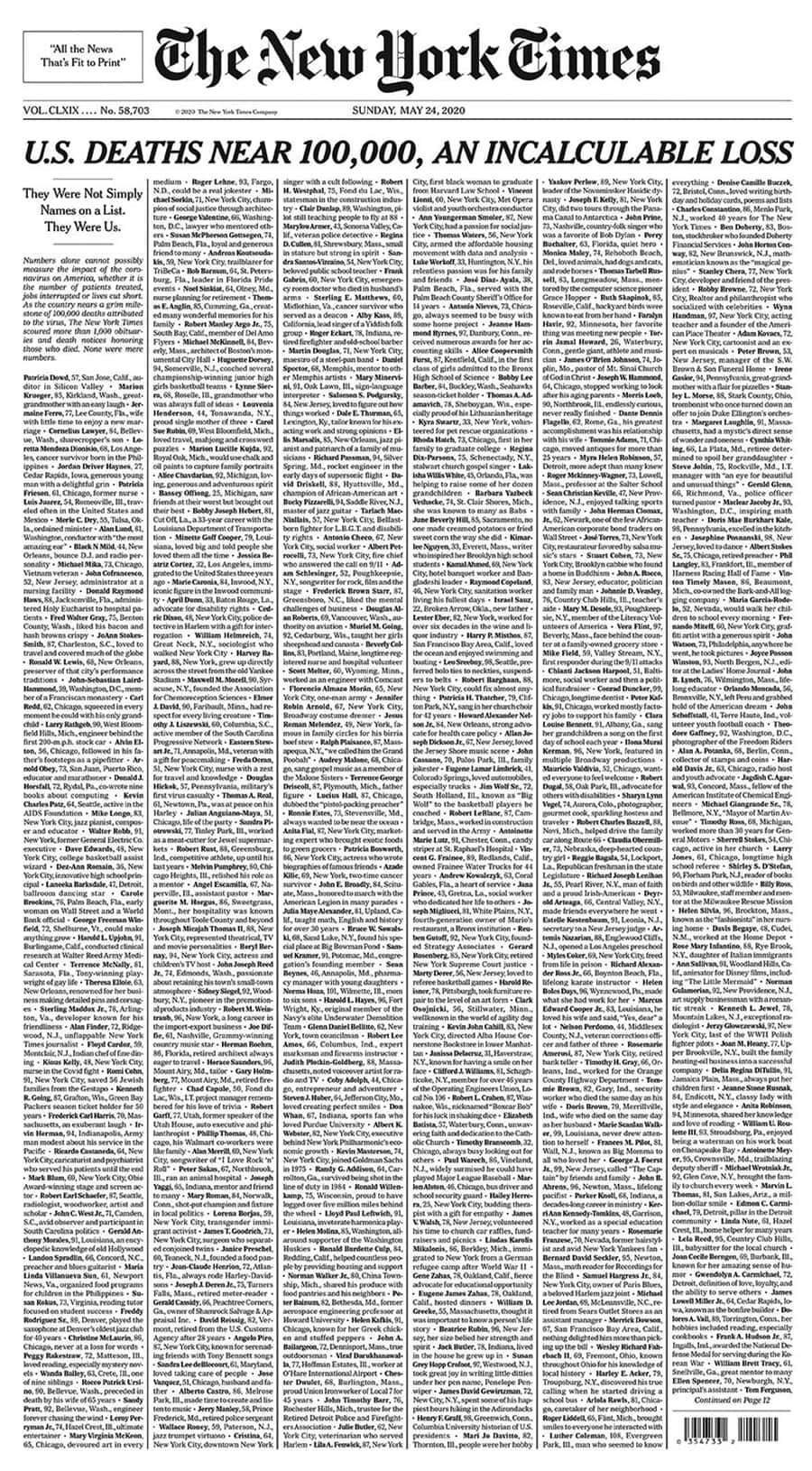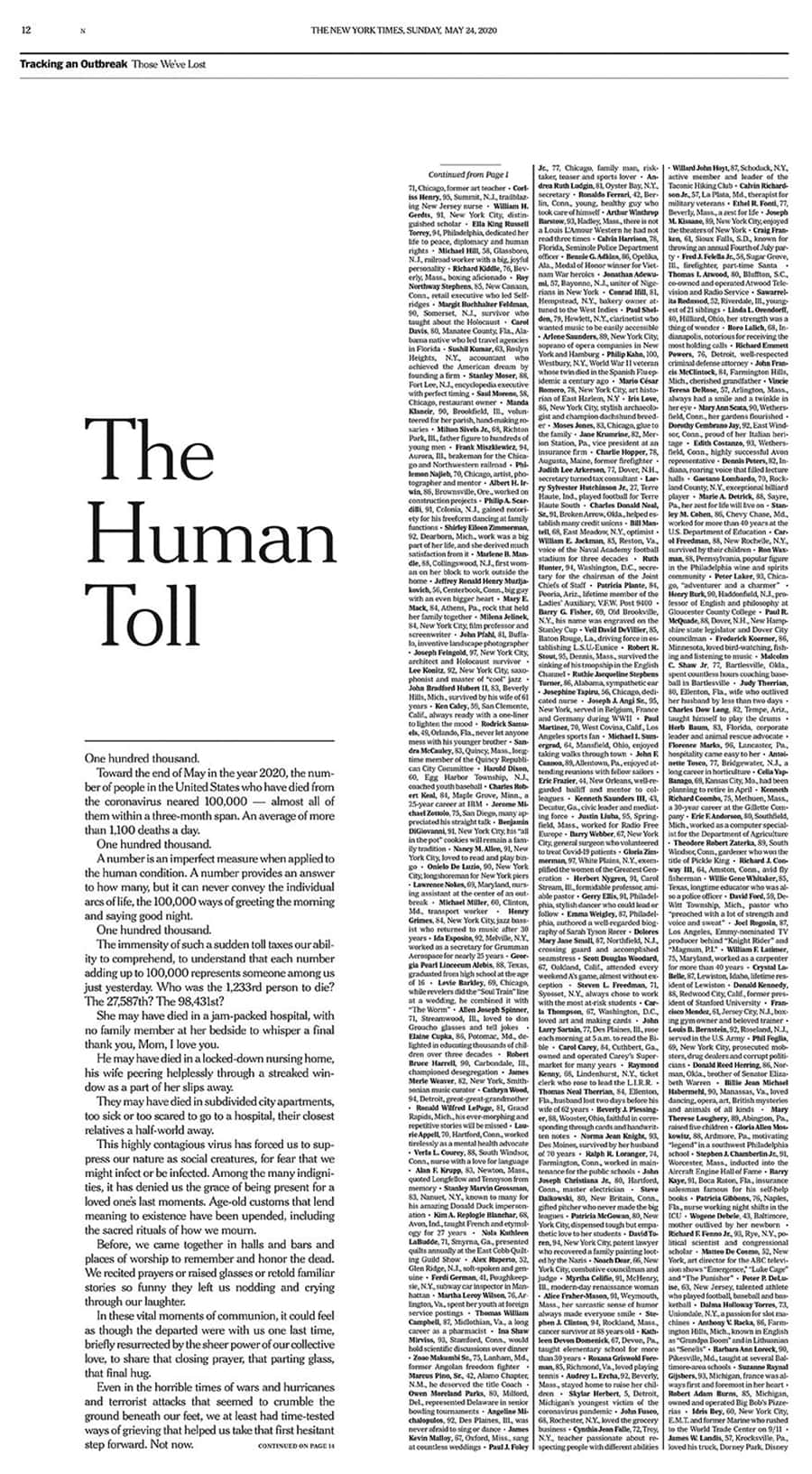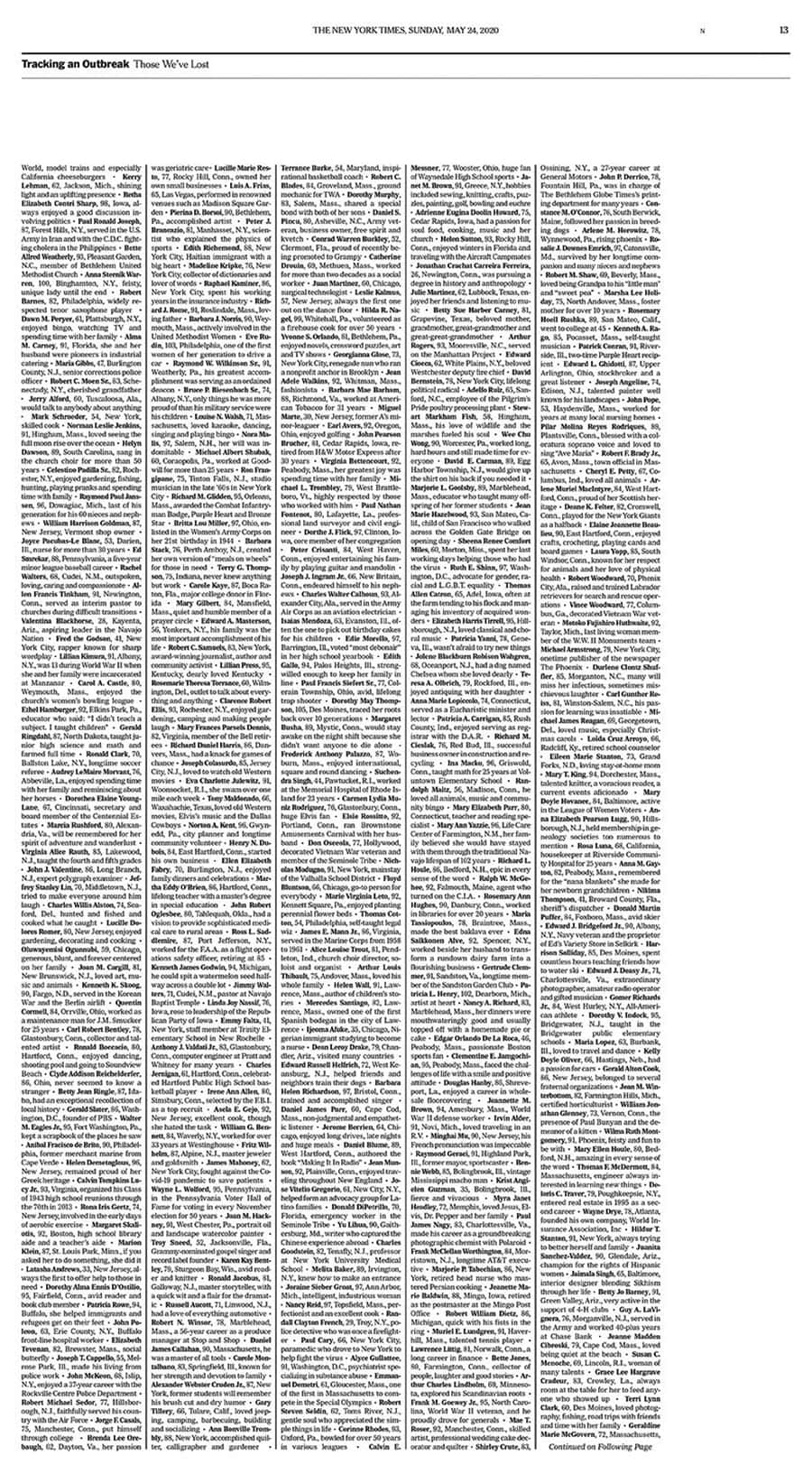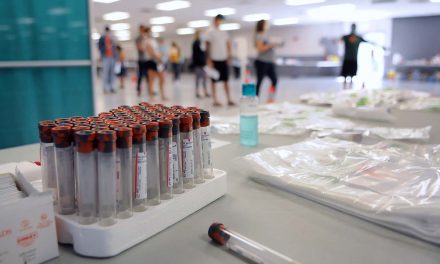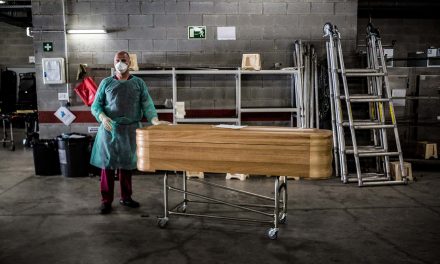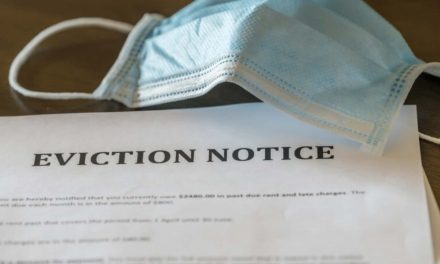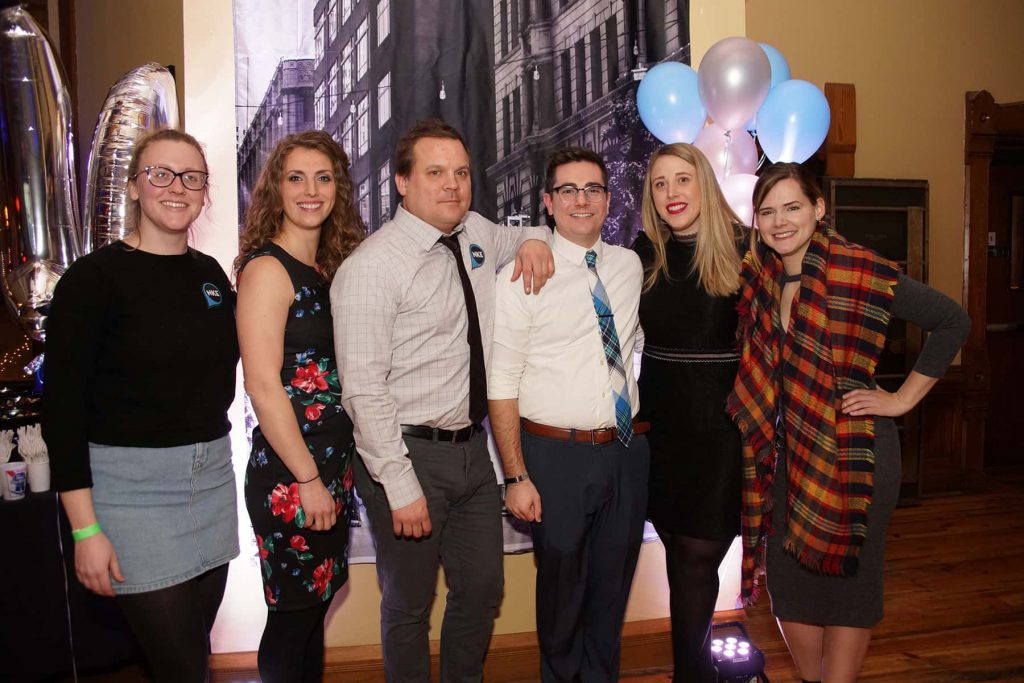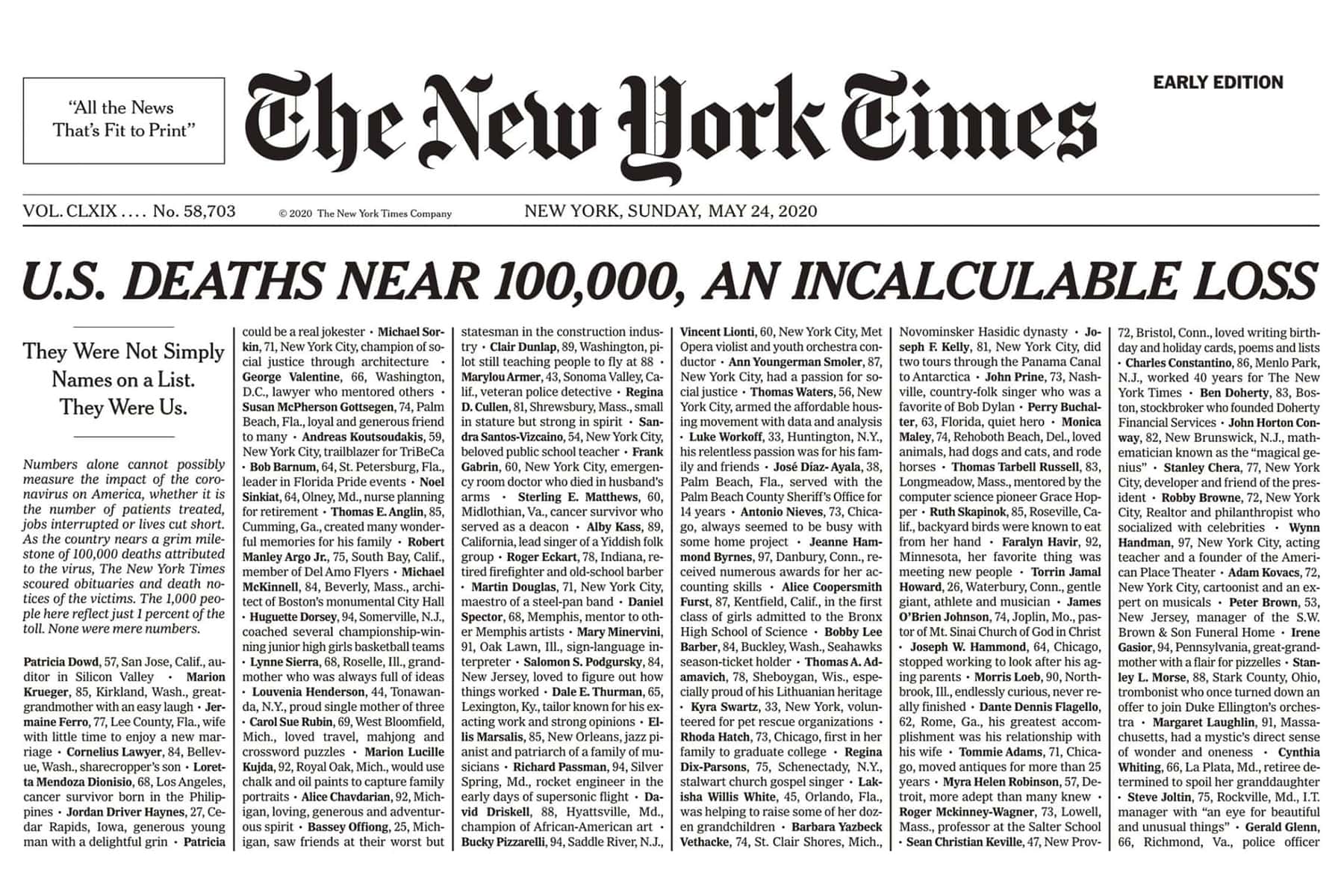
Nearly 100,00 people, America. 100,000 lives in just over 100 days.
100,000 mothers, best friends, favorite uncles, beloved teachers, helpful neighbors, papas, grandmas, first loves, only children, soul mates. 100,000 givers and helpers and creators and lovers and thinkers and healers. 100,000 silenced laughs and interrupted plans and abandoned dreams and stilled bodies and quieted voices. 100,000 empty chairs and beds and house and embraces.
In three months: 1 fully packed football stadium, 38 9/11s, 1.75 Vietnam Wars.
How do you properly grieve this kind of subtraction of humanity? How do you adequately mourn the unfathomable scale and the velocity of such loss? How do you hold a funeral for that many souls at once?
You do it intentionally.
You do it by admitting that it’s happened; by naming the reality and facing it fully and allowing it to break your heart, and not looking away from it on your way to a normal life that you’re so anxious to return to that you’d rather ignore it—but you don’t because you know that 100,000 families will never be able to wish it away or pretend it isn’t real or deny it out of existence.
You do it by holding presidents and politicians and pastors and broadcasters accountable for their complicity; for their lies and misleading statements and efforts to suppress information; for their nonsensical medical advice and their weaponizing of a virus; for their pettiness and smallness and vanity that paraded itself around recklessly while the sickness spread and the bodies were invaded and the lungs filled and the goodbyes metastasized, and the funerals multiplied.
You grieve 100,000 people dead in 108 days by doing all you can to make sure that another 100,000 don’t leave here prematurely, or that 50,000 or 10,000 or 100 don’t. You make the smallest of sacrifices in the coming days, so that not one beautiful, unprecedented, original soul gets sacrificed on the ramshackle altar of your convenience. You wear a mask at the damn grocery store and you wash your hands and you keep your distance and you show kindness to cashiers—and you follow the simple rules put in place to keep people healthy and alive because that’s what decent human beings do.
You grieve this kind of loss by showing restraint and making wise choices and not running cavalierly into the activities that you’ve loved and missed, when those activities will put other people in harm’s way; by having a little self-control and caution because that might be the difference in the path of another person with a spouse and children and a family and work that matters to them, and a life they deserve to live as much as you do.
You grieve 100,000 dead in 108 days by using your words wisely; by not taking to social media or your neighborhood website or a local coffeeshop or a church gathering to complain about the slowness of reopening or to perpetuate conspiracy or to brandish a middle finger defiance to new safeguards or to advertise your perceived oppression—because you realize that someone who loved and lived alongside one of those 100,000 souls may be within earshot, and that your words will press sharply into the fresh heart wounds they’re still nursing.
You grieve 100,000 people by remembering that each one of those lives deserves to be fully grieved, because they are being fully missed and remembered and cried over.
Honestly though, we don’t know how to proportionately grieve the loss of 100,000 because we’ve never had to. We’ve never experienced this kind of unthinkable trauma in so short a time, and so we begin to mourn it all by sitting with that reality, as unsettling and infuriating and overwhelming as it is—because the people who will feel the vacancies for the rest of their lives created by these 100,000 premature departures deserve that we do this.
Yes, America, we’re all tired of the repetition and bored of the unchanging landscapes and missing the regular rhythms and mourning the birthdays we missed and lamenting the income we’ve lost and heartsick over the days we’ll never get back—but we’re still alive and the people we love are—and that means we’re the fortunate ones. We’ll eventually get our postponed reunions and we’ll have our rescheduled gatherings and we’ll sink into the long-awaited embraces of those we love—and yes, having proper gratitude for those moments will be part of grieving well the people who won’t.
But for now, we grieve 100,000 dead Americans in 108 days, by being better citizens, better neighbors, better sharers of space—better human beings. It’s the least we can do. That’s where the grieving begins.
“First COVID-19 came for the nursing homes and I did not take it seriously because i was not in a nursing home. Then COVID-19 came for African-Americans and I did not take it seriously because I was not African-American. Then COVID-19 came for meatpacking plants and I did not take it seriously because I was not a meatpacker. Then COVID-19 came for healthcare workers and I did not take it seriously because I was not a healthcare worker. Then COVID-19 came for me and there was no one left to care for me.”
John Pavlovitz
The New York Times and Kimberly Shine
The original version of this Op Ed was published on johnpavlovitz.com
John Pavlovitz launched an online ministry to help connect people who want community, encouragement, and to grow spiritually. Individuals who want to support his work can sponsor his mission on Patreon, and help the very real pastoral missionary expand its impact in the world.

